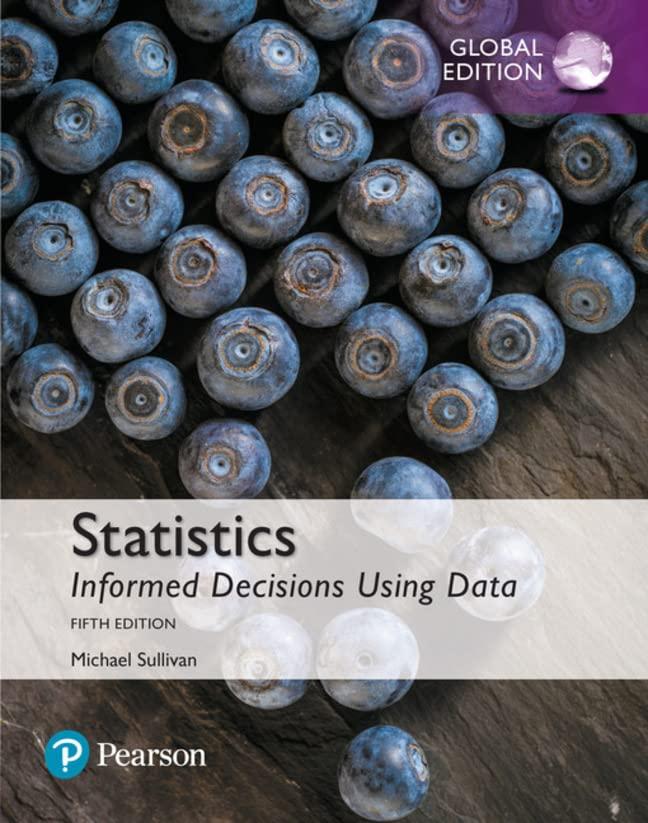A friend of yours wants to play a simple coin-flipping game. If the coin comes up heads,
Question:
A friend of yours wants to play a simple coin-flipping game. If the coin comes up heads, you win; if it comes up tails, your friend wins. Suppose the outcome of five plays of the game is \(\mathrm{T}, \mathrm{T}, \mathrm{T}, \mathrm{T}, \mathrm{T}\). Is your friend cheating?
Approach To decide whether your friend is cheating, determine the likelihood of obtaining five tails in a row. Assume that the coin is fair so \(P(\) tail \()=P(\) head \()=\frac{1}{2}\) and the flips of the coin are independent. Next ask, "Is it unusual to obtain five tails in a row with a fair coin?"
Fantastic news! We've Found the answer you've been seeking!
Step by Step Answer:
Related Book For 

Statistics Informed Decisions Using Data
ISBN: 9781292157115
5th Global Edition
Authors: Michael Sullivan
Question Posted:





